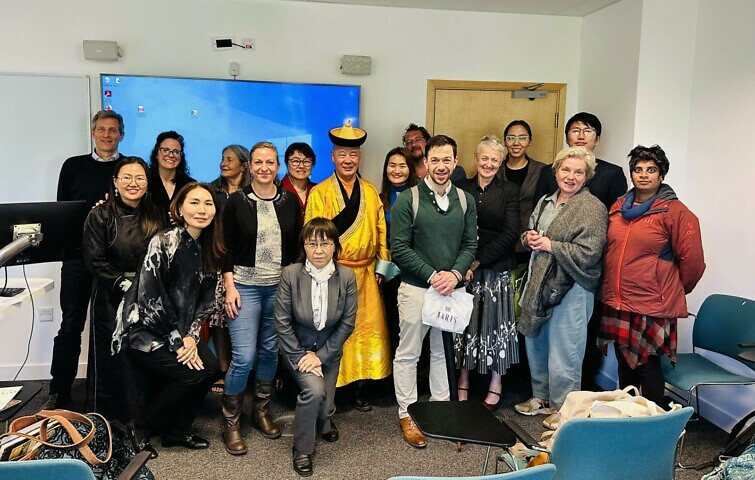Whilst the arts, natural environment and heritage sites are increasingly mobilised in various geographical contexts to foster health and wellbeing today, how can this interest translate into policy change? On 15 May 2023, eleven speakers and thirty-five participants gathered at the Centre for Research in the Arts, Social Sciences and Humanities (University of Cambridge) to address this question, exploring diverse approaches to and emergent trends in improving quality of life beyond biomedicine.
Whilst presenters spanned a wide range of backgrounds – from creative health to shamanism to herbal and traditional medicine – workshop panels were organised around three central themes. The first two themes – the natural environment and cultural heritage (tangible and intangible) – were both approached as material and conceptual resources that are also historical: that is, not self-evident, always mediated by humans, and changing over time. The third panel focused on how to expand health-based treatment approaches from the perspective of UK public policy.

Each presentation was concerned with non-hegemonic medical practices which are largely not part of the central canon of medical treatment methods in their given geographical context. Traditional medicine and shamanism in the Mongolian region and nature- and heritage-based and creative health practices in the UK each foster health in ways that lie outside of dominant understandings of the body, largely shaped by biomedical influences, however broadly conceived and variously manifested in particular contexts. As subaltern practices, part of their politics of existence entails challenging existing norms, and typical assumptions about where and how health-based practices take place. Workshop participants stressed the importance of rejecting existing hierarchies and resisting normativity. In such a politics, agency emerges as centrally important to one’s own health-restoration.
Each presentation too concerned itself with two or more people coming together as co-creators of health, sometimes in large groups. For workshop participants, human health was not an atomised concern distinct from broader life processes; human health is fostered in co-creation and interconnection with others, inclusive of the natural environment. The notion of community here emerged not as pre-defined and static, but as a process patterned by shared life experiences and outlooks, and crucially shaped structural concerns such as those class-based, e.g. not having the non-work ‘free-time’ to participate in health-fostering creative arts. The factors that go into formation of a community able to access such practices requires further exploration as, in public life, places or practices considered heritage are thought to notionally belong to ‘a people’, and considered widely available to those people in a way that is shared. But as particular places and practices undergo ‘wellbeing-ification’ in recent years, and converted into wellbeing-based resources, what kinds of new inequalities emerge (Bear et al. 2015)? Who can access such sites, and how are barriers to access experienced, by whom, and in what circumstances?
In policy-related discussion, participants expressed the need for a pluralistic – but also wholistic – approach to health. As governmental departments are organised and work largely independent of one another, interests become siloed. This means that an issue which spans two or more departments is more challenging to address than an issue that easily fall within one category, e.g. ‘the environment’, ‘the arts’, or ‘health and social care’. Cross-departmental integration is crucial.
Along with the fact that a holistic approach to health is challenging to implement for this reason, such an approach is hard to measure and quantify. Workshop participants expressed the pressing need for new ways of articulating value, expanding the form that typically accepted evidence takes. Part of this involves finding other ways of valuing knowledge beyond knowledge-power systems. By ‘knowledge-power’ French philosopher Michel Foucault means the historically-specific ways in which structures of social power and governing logics work together to reinforce and legitimate each other. Essentially this means that power is based on knowledge, and knowledge is reproduced in ways that serves institutions in power.
Whilst the gate-keeping role of institutionalised power emerged as important to understanding the processes by which health-based understandings and practices comes to be considered legitimate, workshop participants also explored ‘bottom up’ change through grass-roots movements. Certainly many of the pockets of activity in both the UK and Mongolian cultural region could be considered in this way, introducing new ways to cultivate health largely through small scale projects, and relying on the power of personal experience and testimony to spark change. If we consider that practices emerging from particular knowledge-based standpoints ‘make’ realities, as scholars of science and technology studies and allied subdisciplines would have it (e.g. Latour & Woolgar 1979; Mol 2002), then grassroots change is not only a distinct possibility, but already ushering in realities the many activists of wholistic health want to live in.

